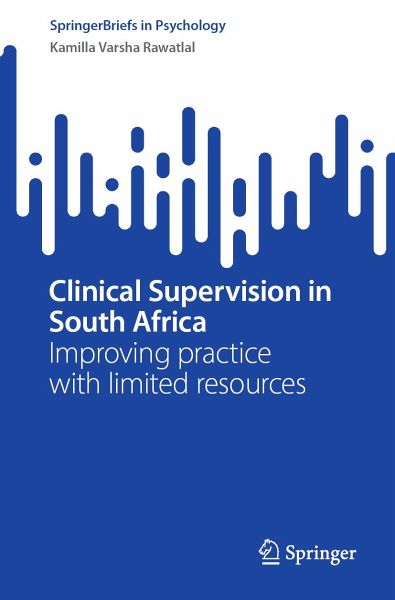
Clinical Supervision in South Africa (eBook, PDF)
Improving practice with limited resources
Versandkostenfrei!
Sofort per Download lieferbar
40,95 €
inkl. MwSt.
Weitere Ausgaben:

PAYBACK Punkte
20 °P sammeln!
In this publication, an ecological, relational framework to support practitioners i. e. Masters' level Psychologists/Social Workers/Health Professionals, Interns navigate 21st century challenges and opportunities in the provision of mental health care services at various institutions in developing countries such as South Africa is discussed. With an increased uptake of mental health care services in recent times and the advent of teletherapy to make these services more accessible, health care professionals have had to also reconcile working within institutional structures that place challenges...
In this publication, an ecological, relational framework to support practitioners i. e. Masters' level Psychologists/Social Workers/Health Professionals, Interns navigate 21st century challenges and opportunities in the provision of mental health care services at various institutions in developing countries such as South Africa is discussed. With an increased uptake of mental health care services in recent times and the advent of teletherapy to make these services more accessible, health care professionals have had to also reconcile working within institutional structures that place challenges and pressures. Psychologists and Health Professionals employed in various governmental institutions such as health and higher education have also been subject to multiple competing demands that increase the risk of compassion fatigue and burnout. Reference is made to research that has demonstrated that burnout arises from multiple institutional, professional and personal factors, including healthprofessional's belief's and coping.¿
Dieser Download kann aus rechtlichen Gründen nur mit Rechnungsadresse in A, B, BG, CY, CZ, D, DK, EW, E, FIN, F, GR, HR, H, IRL, I, LT, L, LR, M, NL, PL, P, R, S, SLO, SK ausgeliefert werden.












